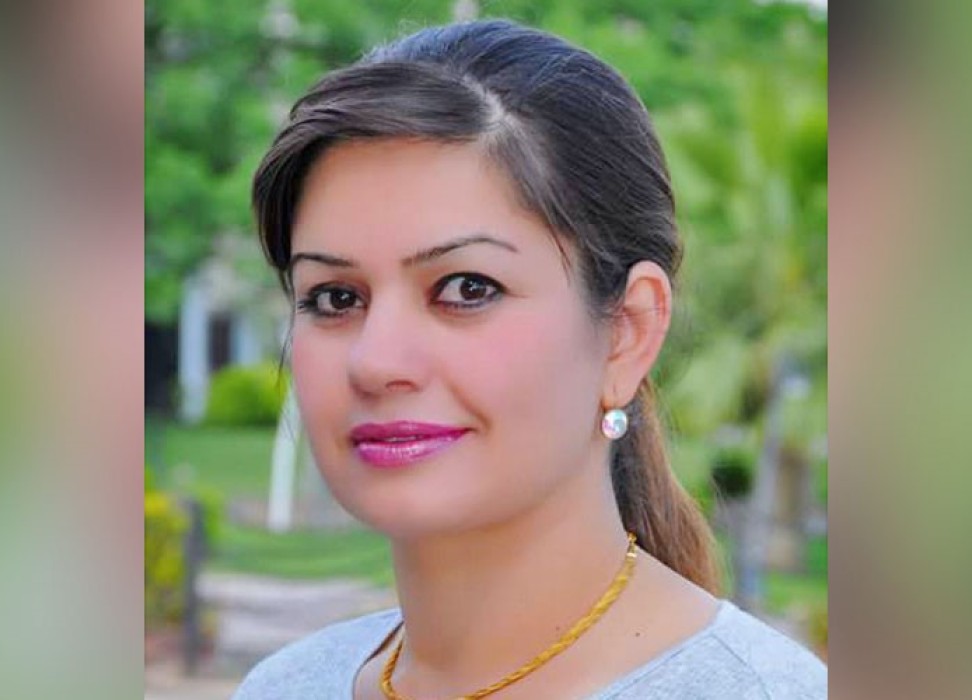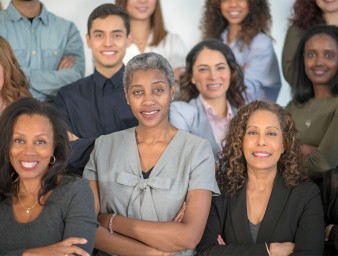UN Human Rights staff member: “You can change your life to help others make a change”
03 January 2020

Iraqi Jamila Mahdi is a former refugee. Although she was married at 13 and denied the right to education, she still had a strong determination to succeed. Jamila earned her high school diploma as an adult, followed by two university degrees. She now works as a Human Rights Officer in Iraq, for UN Human Rights.
Here is her story.
“I was born in a refugee camp in Sanandaj, Iran. Amidst a male dominant society, I lived in a house full of struggle and violence.
When I was 13, I was living in Mosul, Iraq. My father sent me to marry one of his relatives in the village. I had only just received my sixth grade certificate.
There began a life of hell. I was abruptly turned into a slave and a farmer. I was deprived of a calm childhood and my fundamental rights.
I spent 12 years being persecuted, and living in extreme poverty, working as a farmer and looking after livestock. I was left alone during my pregnancies and in childbirth, and I raised my four children, whom I barely got to see. I used to leave the house before dawn and return well into the night to prepare their meals for the next day.
Until one day, I collapsed.
At that point – when I was 23 - I decided to return to school and pursue my diploma. But my husband wasn’t supportive. At first, I used every way possible to convince him, even attempting suicide, but the attempts failed. Eventually, and fearing that I would leave him, he finally agreed and I enrolled in school with the support of my brother.
My educational journey started by studying at home through an external education program, followed by enrolling in the ninth grade official exam alongside students in Mosul. I nailed it.
A new chapter of my life started.
I graduated from high school and moved to the city to enroll in university in the faculty of political science. It wasn’t easy, I studied all year round, and I graduated with a degree.
In order for my children to get support and complete their education, I started working in the private sector. I studied at night and was able to obtain my Master’s degree.
My husband and I divorced in 2017.
I now work for UN Human Rights.
You can change your life to help others make a change.
Today, I work as Human Rights Officer in Erbil, in the office of the United Nations Assistance Mission for Iraq. My work is currently focused on monitoring cases of violations and protecting civilians during armed conflict.
Why did I choose to do this? I have a strong belief in the need to contribute to the protection of human dignity and social justice and the elimination of all types of discrimination.
It’s important that we address human rights violations, and that we take effective measures for the purpose of committing governments and authorities concerned to work to hold the perpetrators accountable.
I myself belong to a minority.
And I have long felt restrictions and discrimination against these people, especially those belonging to religious minorities. I needed to do something to educate the community, and also to work to avoid such violations using peaceful methods. I believe in respecting human dignity and ensuring all human beings have rights.
I intend to continue working in this field as long as there are cases of human rights violations, insecurity and injustice.
I dream of a non-discriminatory Iraq.
Iraq today – and for many years - is facing a multitude of human rights concerns.
I hope one day that Iraq can be a country in which freedom of expression, belief and religion are respected. I hope that Iraq can be politically and economically stable, that it can be safe and secure, and that education can flourish. I dream of an Iraq whose citizens enjoy full equality in all opportunities.”
3 January 2020



